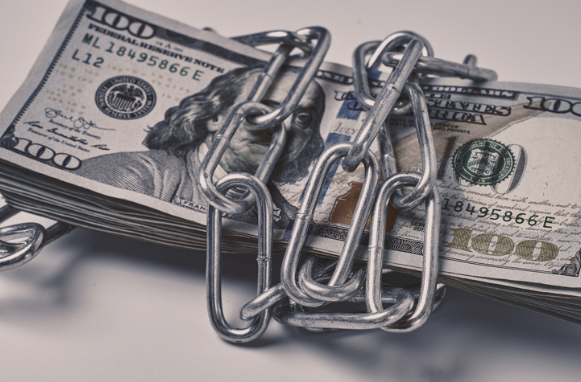If you’re wondering, “Can creditors freeze your bank account if you fall behind on payments?” The answer is yes—but only after they’ve gone through the legal system. A freeze typically happens when a creditor gets a court judgment and notifies your bank. It’s a multi-step process, often used as a last resort after other collection efforts have failed.
At Debt Reduction Services, we’ve helped people take control of their finances before things escalate to legal action. Once a judgment has been entered or wage garnishment is in motion, options become more limited. That’s why it’s important to take action early—before a creditor turns to the courts. Let’s break down how the process works—and what you can do to protect your finances moving forward.
What Exactly Does It Mean If Creditors Freeze Your Account?
When a creditor freezes your account, they’re placing a legal hold on the money inside. This means you won’t be able to:
- Withdraw cash
- Make purchases
- Pay bills
- Transfer funds
The account itself isn’t closed, but it’s temporarily locked until the creditor completes the legal recovery process. This action usually follows a court judgment and is intended to secure the debt you owe. While it can feel alarming, it doesn’t happen overnight. The freeze is a final step in a longer process, and knowing what it means can help you respond with a clear head and take the right next steps.
What Is the Legal Process for Freezing Bank Accounts?
Having your bank account frozen can feel sudden, but it’s the result of a specific legal process that permits creditors to take that action. Here’s how it usually works:
- You fall behind on a debt: Debts could include credit card debt, personal loans, unpaid medical bills, or other financial obligations.
- The creditor files a lawsuit against you: They must take you to court and present evidence that you owe the debt.
- The court issues a judgment: If the court rules in favor of the creditor, they receive a legal judgment that allows further collection action.
- The creditor requests a bank levy: They file paperwork to freeze your account and present it to your bank.
- Your bank freezes your account. By law, the bank must comply with the order, limiting access to your funds.
What Types of Debt Lead to Bank Account Freezes?
Not all debt results in legal action, but certain types are more likely to lead to a freeze, especially if they go unpaid for a long period. Over time, creditors can freeze your bank account if they win a judgment tied to:
- Credit card debt
- Unpaid personal loans
- Medical bills
- Delinquent taxes or government fines
- Court-ordered child support or alimony
- Unpaid utility bills that have gone to collections
- Defaulted student loans
If you’re worried about falling behind, we can help you take action and negotiate with creditors before things escalate.
Can I Still Use a Frozen Account?
You can still deposit money into a frozen account, but you won’t be able to access it. Withdrawals, transfers, debit card purchases, and online payments are all blocked. Even new deposits, like a paycheck or direct deposit, will typically be held under the freeze unless legally exempt.
This type of account freeze is usually part of a bank garnishment, which allows a creditor to collect on a debt after receiving a court judgment. The freeze is how your bank complies with that order, locking the funds so they can be used to repay what’s owed.
What Money Is Protected from Account Freezes?
If you’re facing a frozen bank account, you might be wondering what funds are still safe. In many cases, certain types of income are legally protected from garnishment, but rules can vary by state or jurisdiction. Even though creditors can freeze your bank account, they generally can’t touch funds that fall into one of these protected categories:
- Social Security benefits
- Veterans’ administration benefits
- Supplemental Security Income (SSI)
- Pension or retirement account payments
- Child support payments received
- Survivors’ benefits
To ensure these funds are recognized and protected, you may need to notify your bank or file a claim of exemption.
How Long Does It Take a Creditor to Freeze Your Bank Account?
Once a creditor wins a court judgment against you, the timeline to freeze your account can vary. In general, it may take several weeks to a few months, but it depends on several factors, including:
- How quickly the creditor files for a bank levy
- How long the court takes to process the request
- Whether you receive and respond to any notices
- Your state’s legal procedures for garnishment
While there’s no exact timeline, a freeze usually doesn’t happen overnight. If you’re concerned about this possibility, taking early action can help you stay ahead of it.
How Long Can a Creditor Seize Your Bank Account?
How long can a creditor freeze your bank account once it happens? In most cases, the account stays frozen until the debt is repaid in full or until you reach a legal agreement with the creditor, such as a settlement or payment plan.
The freeze may also end if the court judgment is overturned or you successfully file a claim of exemption for protected funds. Because there’s no universal time limit, frozen accounts can remain locked for weeks, months, or longer, depending on the situation and how quickly the issue is resolved.
How Do I Stop Creditors from Freezing My Bank Account?
The best way to prevent a freeze is to act early. If you’re falling behind on payments, it’s often possible to negotiate directly with creditors before they take legal action. Setting up a repayment plan can help you avoid more serious consequences, like a frozen account. In some cases, filing for bankruptcy may also provide legal protection, but it’s not the only path.
If you need help figuring out what’s best for your situation, Debt Reduction Services can work with you to explore your options and communicate with creditors on your behalf.
What Do I Need to Do If My Account Is Frozen?
If your account is unexpectedly locked, it’s important to act quickly. Start by contacting your bank to confirm your account is frozen and understand who issued the freeze. From there, you may be able to file a claim of exemption if your account holds protected funds. Speaking with a legal advisor or financial expert can help you understand your rights and next steps.
Even if your account is currently frozen, you may still have time to negotiate. Reaching out to the creditor directly or working with a debt specialist could lead to a manageable resolution.
Regain Control of Your Finances With Trusted Support
Dealing with debt can feel overwhelming, especially when you hear about the possibility of bank account freezes. While these situations are rare, they often happen only after serious legal steps, typically involving the State or Government working with your employer to garnish wages.
That’s why it’s so important to act early. By working with a trusted debt management company, like Debt Reduction Services, you can take control, reduce your debt, and avoid wage garnishment altogether. From creating personalized repayment plans to negotiating with creditors, support is available to help you protect your financial future. Explore our credit and debt consulting services today to see how you take the next step toward financial relief.










